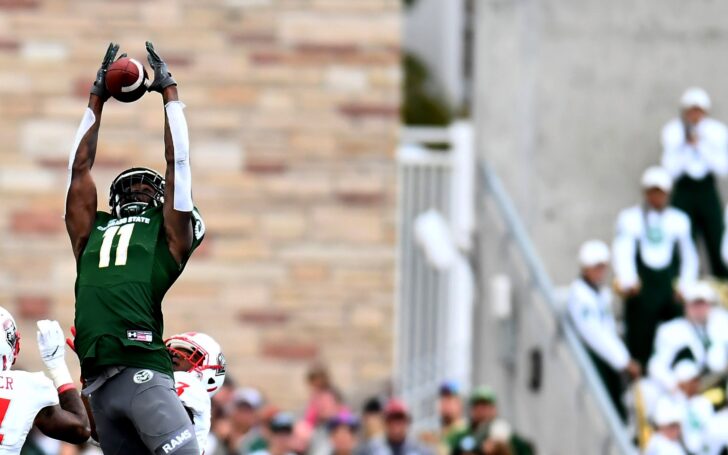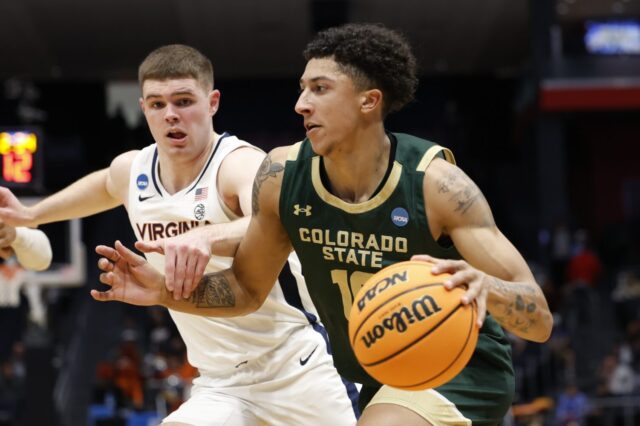The game-winning touchdown that never was.
Preston Williams’ spectacular grab in the end zone as time expired will be remembered alright. But, for all the wrong reasons.
The referees went by “the book,” and did so correctly. However, the rule is problematically generalized, and needs to be corrected.
We saw why during Colorado State’s gutsy senior day performance against No. 14 Utah State.
As you probably already know, a penalty on Williams stripped a monumental upset from the Rams. CSU played its best game all season on the frigid afternoon, against one of its most difficult opponents.
Though few fans were in Canvas Stadium to witness it, the Rams exhibited passion and raw emotion that the team had been missing all season. Despite facing Utah State as 28-point underdogs, CSU outplayed the Aggies and did everything necessary to win.
The result should have been the most significant win of head coach Mike Bobo’s tenure. However, it wasn’t, and only because of a rule that urgently needs to be amended.
To clarify, Williams’ 39-yard, time-expiring grab in the end zone to deliver a 30-29 victory was called back because Williams stepped out of bounds.
The receiver didn’t step out of bounds upon bringing down the desperation heave. If that was the case, CSU players wouldn’t have stormed the field in celebration. It would have been obvious the catch was insufficient.
No, Williams stepped out of bounds while running his route. Since he was the first player to touch the ball, the rule claims that Williams failed to re-establish himself, dictating him ineligible for the reception.
Though some would argue so, I’m not claiming the referees experienced a lapse in judgement and missed the call. The call was actually correct. Especially since Williams went out of bounds under his own power, and wasn’t forced out of bounds.
However, this rule is generalized. The situation is treated as a “one-size-fits-all” scenario, when in reality it isn’t.
I get it, the rule was created so players aren’t allowed to use the sidelines to their advantage. And they shouldn’t. Of course, it would be ridiculous for a receiver to sprint downfield and weave around or through benches in order to create space from defenders.
Doing so is creating an unfair advantage. But, my point here is that in circumstances in which a receiver happens to step out of bounds, but doesn’t create an upper hand from doing so, there should be no penalty.
That is exactly what happened with Williams. Half of the receiver’s foot grazed the white chalk. This obviously didn’t impact the play or enhance Williams’ route whatsoever.
Since the Rams receiver stepping out of bounds did not alter the play, there is no reason for him to be penalized for making the reception.
Again, the refs got the call right. All credit to them, it was probably a pretty tough call to make given the disorder that followed the touchdown.
Regardless, refs need to be given the power to make this judgement on a play-by-play basis. When a player touches the ball first after making contact with the white chalk, refs should be allowed to ask themselves whether or not doing so gave the receiver an advantage on the route.
The answer to that question should then lead to the call on the field.
If the refs were allowed to appropriately judge the last play on Saturday afternoon, the Rams would have escaped with a signature victory they truly deserved.
However, because of the unnecessary rule, it was all for not. The game will be remembered, but for all the wrong reasons. The only hope is Preston Williams’ play inspires debate amongst the league regarding the current rule.



